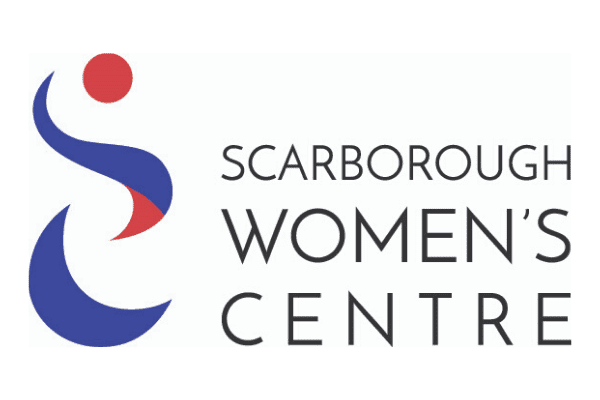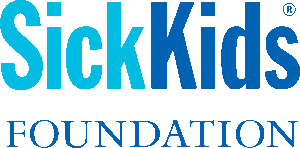Scarborough Women’s Centre
Scarborough Women’s Centre fostering empowerment and inclusion through decent work
Effective decent work practices can help address systemic inequalities experienced by staff and clients alike by contributing to flexible and inclusive workplaces. For Scarborough Women’s Centre (SWC), decent work research offered insights into the challenges that women with disabilities face in navigating employment and practices that promote the inclusion of women with disabilities in the workforce.

Citing data from Statistics Canada in 2017, “Right now, we know that approximately 24 per cent of women have some sort of disability and this number is expected to increase as the population ages,” says Melissa Simas, Program Coordinator, Expanding The Reach: Outreach to Women with Disabilities at SWC.
SWC is a community-based and non-profit organization that has touched the lives of 175,000 women and their children since it was established in 1982. Their mission is to deliver programs and services to promote positive change for women in a safe, inclusive, and welcoming environment. The Centre empowers women to become economically and emotionally independent for future success, and to strengthen their local communities, free from violence. SWC provides a range of information, education, and support services to assist women in the transition to economic and emotional independence.
The Expanding The Reach: Outreach to Women with Disabilities (ETR) program was established in 2009 to better meet the needs of women with disabilities living in Scarborough. The goals of the program are to: provide women with disabilities with access to: educational workshops, leadership development opportunities that build the capacity of women with disabilities to take on leadership roles in their community, and to learn what is needed to make programs and services responsive to the needs of women with disabilities. Simas joined the team at SWC in 2011 and brings her passion for women’s right’s and promoting the social inclusion of people with disabilities to her role.
In 2017, the ETR program received funding from the Department of Women and Gender Equality Canada. The three-year project worked to promote the economic security and inclusion of women with disabilities in the workforce. Through research and community consultations, several organizational and systemic barriers for women with disabilities have been identified, as well as solutions.
Research shows that women with disabilities are more likely to experience poverty. This means that they may have to rely on family or partners for financial support, which puts women with disabilities at greater risk of experiencing gender-based violence.
Building employment opportunities based on principles of inclusion can help address vulnerability and dependence, Simas says. They can also make for a more effective organization and deepen community impact.
“A workplace that is inclusive to employees with disabilities contributes to decent work by promoting a sensitivity and awareness to diversity and inclusion, encouraging workplace flexibility, developing innovative programs and services that are responsive to diverse needs in the community, and expanded customer reach.”
Challenging assumptions
Decent work also means developing employment strategies based on engaging with job seekers and resisting the urge to make assumptions about their capacity to perform workplace tasks based on their disabilities, like presuming someone in a wheelchair would be best placed in a desk job. Simas says a better approach for job placement advisors would be to discuss a candidate’s experience and interests to ensure a better fit and greater job satisfaction – which in turn improves an organization’s effectiveness.
It’s also important to understand the value of lived experience, she adds. This can provide a deeper understanding of an employee’s skills developed through their day-to-day living experiences, but also provide insight into making the workplace more accessible for all staff. “It adds a richness to a person’s work,” Simas says.
Normalizing inclusion
While it’s important to work with staff with disabilities to develop effective workplace accommodations, engaging all employees in regular discussion about what organizational support would improve their work can lead to changes across the workplace for wider benefit, Simas says. This helps to normalize conversation about disability and access for all staff and shows employees with disabilities the organization takes inclusion more seriously.
“By taking that onus off the individual with a disability, it demonstrates to people that organizations are thinking about it already,” she says.
Normalizing inclusion shifts the focus from individual accommodation to more systemic change. And it doesn’t have to be difficult, according to Simas. She points to flexibility in work schedules as a decent work practice that can benefit all staff.
Flexibility as a workplace accommodation can also mean allowing employees to take frequent breaks and to work from home, when needed. More generally, it can relieve the stress of caring for young children or older relatives that may come about while working a strict nine-to-five schedule. These are family responsibilities that some project participants said they still feel primarily responsible for, despite advances in gender equality. Most recently, more employers are also learning how workplace flexibility and the ability to work from home can help people stay employed and stay healthy in response to COVID-19.
The result? Staff feel more valued by an organization and often feel they can contribute more to their work when they are not stressed by trying to balance work and life commitments.
Simas points to other ways flexibility can improve access to meaningful employment, drawing on insights from research participants.
“We also heard that decent and flexible work improves access to the labour market for women with disabilities by acknowledging the value of various kinds of work: part-time, volunteer, and full-time work,” she says. It is important to recognize that full-time work may not be the end-goal for all women with disabilities.
It begins with self-reflection and then a conversation
Organizations looking to develop decent work strategies that are more inclusive of staff with disabilities should start by looking at their current practices and workplace culture (such as through an audit) and engage with the disability community at large.
This approach helps shift the focus from physical access (such as ramps or elevators, and their associated costs) to a more comprehensive understanding of accommodation (to include visible and invisible disabilities), Simas says.
“The community engagement piece is really important to us, because historically, people with disabilities have been left out of discussions that are about them”
Being open to constructive feedback – and then actively incorporating that feedback – shows that an organization takes the accessibility seriously, and that it understands the process is ongoing and dynamic.
“We are all in this together and we are all learning,” Simas says.
Some starting points for promoting greater inclusion of women with disabilities in the workplace include:
- Consider carrying out an accessibility audit for your organization. How aware of disability issues are your staff?
- Reflect on your own perceptions of disability. Do you carry negative attitudes and assumptions that you would need to expose and challenge before bringing more people with disabilities into your workplace?
- How physically accessible is your organization to women with disabilities?
- Do you promote your programs, services and job postings within the disability community?
- Do you circulate job postings in a word and PDF formats? Note: PDFs are not always accessible to people who use screen readers
Scarborough Women’s Centre has developed a series of training modules for organizations looking to develop stronger workplace inclusion strategies. Topics include developing a clearer understanding of inclusion, accessible recruitment and hiring practices, and disclosure in the workplace. Please contact Melissa Simas at program@scarboroughwomenscentre.ca for more information about training opportunities, and visit the SWC website to learn more about their programs and services.



